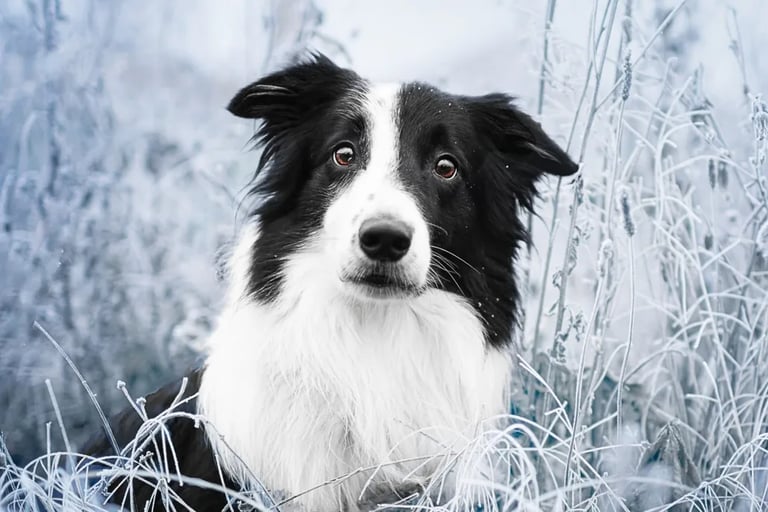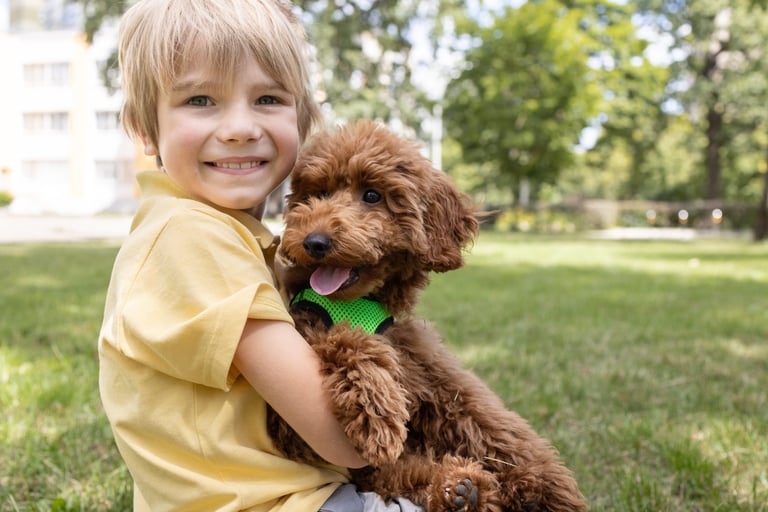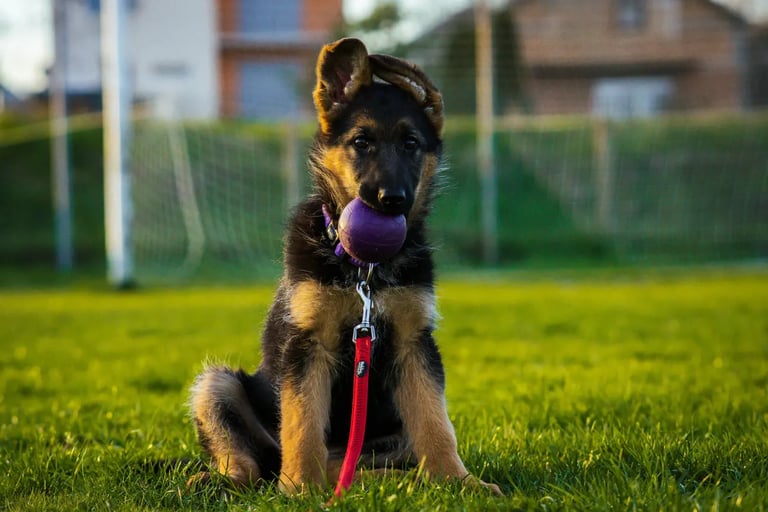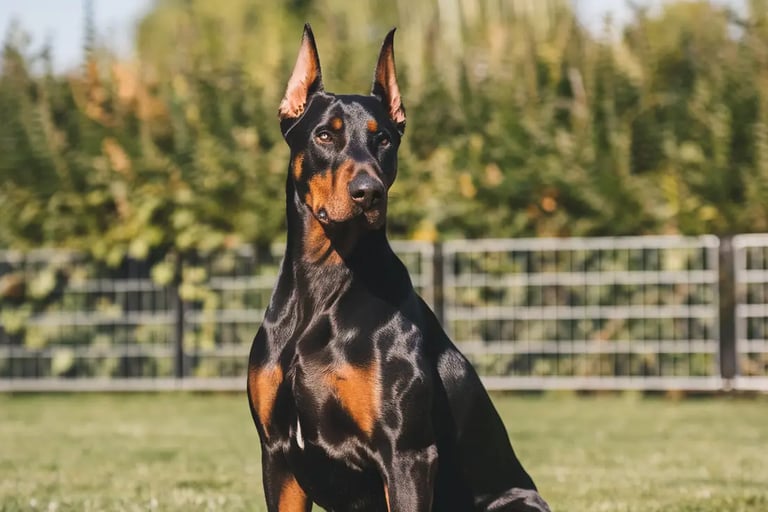The Top 5 Smartest Breeds of Dogs and What Makes Them Shine
Intelligence in dogs is more than just being cute – it’s about learning, problem-solving, obedience, and adaptability. If you are looking for a dog breed that excels in antrenare caini (dog training) and stands out among caini inteligenti (intelligent dogs), here are five standout breeds you should know. Each of them brings their own strengths and requires appropriate mental and physical stimulation to truly thrive.
11/2/20256 min read
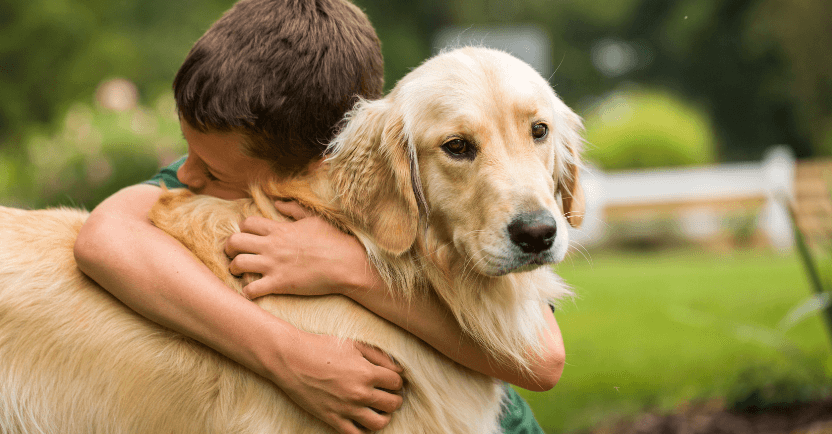

The Top 5 Smartest Breeds of Dogs and What Makes Them Shine
Intelligence in dogs is more than just being cute – it’s about learning, problem-solving, obedience, and adaptability. If you are looking for a dog breed that excels in dog training and stands out among intelligent dogs, here are five standout breeds you should know. Each of them brings their own strengths and requires appropriate mental and physical stimulation to truly thrive.
1. Border Collie
Often cited as the smartest dog breed, the Border Collie stands apart in terms of trainability, focus, and problem-solving skills. According to breed intelligence rankings, the Border Collie tops the list. (American Kennel Club)
Why it’s so intelligent:
Originating as a herding dog on the Anglo-Scottish border, the Border Collie’s instincts drove it to constantly assess, anticipate and control livestock movements—skills that translate into rapid learning and adaptability. (Wikipedia)
In studies designating “working/obedience intelligence,” this breed repeatedly showed the highest ability to learn new commands in under five repetitions and obey first time.
Training tips:
Provide clear consistent commands, and frequently challenge the dog with new tasks such as agility, obedience trials or herding simulation.
Because of their high intelligence and energy, without proper mental stimulation they may become destructive or frustrated—so expect to invest time and effort.
Ideal for experienced owners who can commit to training and engagement daily.
2. Poodle (Standard, Miniature & Toy)
Poodles are often underestimated, thanks to their fancy grooming and appearance—but make no mistake: they rank very high among intelligent dog breeds.
Why it’s so intelligent:
These dogs excel in obedience, cleverness and versatility—whether Standard, Miniature or Toy variety. They pick up new commands quickly and respond well to positive reinforcement.
Their trainability covers varied roles: agility, service work, performance, and companionship.
Training tips:
Use varied activities to keep the Poodle engaged: trick training, scent games, agility courses.
Their intellect thrives when paired with novelty and mental challenges—so mix up routines and do short sessions often.
Because many people pick Poodles for their hypoallergenic coat, don’t forget: mental training and exercise are equally important for training dogs.
3. German Shepherd Dog
The German Shepherd is synonymous with versatility and intelligence. Whether used in police work, service roles or as a family companion, its trainability and adaptability are widely respected.
Why it’s so intelligent:
Bred for guarding and herding, the German Shepherd had to make decisions, protect, learn commands and adapt to new situations—traits that reflect high working intelligence and trainability.
The breed consistently ranks near the top in obedience and working intelligence surveys.
Training tips:
Start socialisation and training early (puppy stage) to channel their intelligence in positive ways.
Use structured routines with clear leadership—but also enhance a bond built on trust so the dog is eager to follow.
Because they’re so capable, without proper direction they might channel intelligence into unwanted behaviours. The breed profile warns that intelligence is not automatically positive unless matched with training and time. (American Kennel Club)
4. Golden Retriever
A family-favourite breed, the Golden Retriever also ranks among the most intelligent dogs. Its compassionate, cooperative nature and trainability make it an excellent choice for those wanting an intelligent dog that is also gentle and social.
Why it’s so intelligent:
A breed that combines social intelligence (understanding people, interacting gracefully) with obedience intelligence (learns and follows commands well).
Has been used as therapy dogs, guide dogs, search and rescue—proof of adaptability and high trainability.
Training tips:
Ideal for families wanting a “smart but friendly” dog: use positive reinforcement, consistency, and plenty of socialisation.
Include mental games (fetch with variations, scent work, problem-solving toys) to engage their intelligence beyond physical exercise.
Because Golden Retrievers are eager to please, they respond especially well to gentle but firm training.
5. Doberman Pinscher
The Doberman Pinscher is often perceived purely as a guard dog—but behind the strong exterior lies a breed with impressive intelligence, loyalty and a strong drive to learn and perform. (Wikipedia)
Why it’s so intelligent:
Numerous intelligence surveys place the Doberman among the top for obedience and working intelligence. (Wikipedia)
The breed was originally developed as a companion to a tax-collector (Louis Dobermann) who wanted both companionship and protection—so the breed had to combine loyalty, problem-solving and trainability. (Wikipedia)
Training tips:
Needs consistent, confident leadership and regular mental & physical exercise to channel intelligence.
They excel when they have tasks and challenges: protection training, advanced obedience, agility, or even service-dog training.
Because of their drive, early training and socialisation are key for balanced behaviour.
Why Intelligence Matters in Dogs – And What It Means for Training
When you’re considering an intelligent dog breed and investing in dogs training it’s helpful to understand what “intelligence” actually entails in dogs.
Three major aspects of dog intelligence (as outlined in studies and breed-intelligence books):
Instinctive intelligence: The dog’s ability to perform tasks it was bred for (herding, guarding, retrieving). (American Kennel Club)
Adaptive intelligence: The dog’s ability to solve problems on its own, learn from experience.
Working & obedience intelligence: The dog’s ability to learn from humans, obey commands, follow instructions.
A dog breed that scores highly on these dimensions will typically learn faster, respond to training more effectively, and offer more versatility—provided the owner invests in training and mental stimulation. As the American Kennel Club states: “Most dogs are smart, but in different ways… To bring out your dog’s natural smarts, you have to study the breed, put in the necessary time to train, and understand its natural traits.” (American Kennel Club)
In other words: intelligent dogs are a great asset, but they also demand great engagement. Without an appropriate “job” or challenge, even the smartest dogs may become bored or misbehave.
Choosing the Right Intelligent Breed for You
If you’re looking for one of these breeds, here are a few considerations to ensure a good match:
Time & commitment: Do you have time for regular dogs training , mental games, training sessions and adequate physical exercise?
Environment & lifestyle: Some breeds (like the Border Collie or German Shepherd) require more space and activities; others (Poodles, Golden Retrievers) can adapt more easily if mental stimulation is provided.
Experience level: If you’re new to dog ownership, picking a highly intelligent, high-drive breed can be more challenging. Choose one whose temperament and energy match your capacity.
Training approach: Positive reinforcement methods work best. Intelligent dogs respond swiftly to consistent and fair rules, clear commands, and enrichment.
Mental & physical balance: Smart breeds often need “jobs” or challenges: trick training, agility, scent work, obedience, interactive toys. It’s not enough just to walk them—variety matters.
Final Thoughts
When you spot a dog that sits up, tilts its head, watches you carefully and seems to get things quickly, you’re seeing intelligence in action. Whether you want a breed for family life, service tasks, agility, or simply an obedient companion, choosing a smart dog adds a whole new dimension to the relationship.
From the tireless focus of the Border Collie, the refined versatility of the Poodle, the all-round capabilities of the German Shepherd, the friendly trainability of the Golden Retriever, to the loyal sharpness of the Doberman Pinscher—these are five top choices for anyone interested in intelligent dogs and serious dogs training.
But remember: owning a smart dog is not a shortcut to “easy.” It’s more like owning a bright student who wants to learn and expects the right teacher. When you keep them engaged, you’ll be rewarded with a loyal, capable, and deeply companionable dog.
If you want an easy way to train your companion, click the link. https://h7.cl/1dT9G
